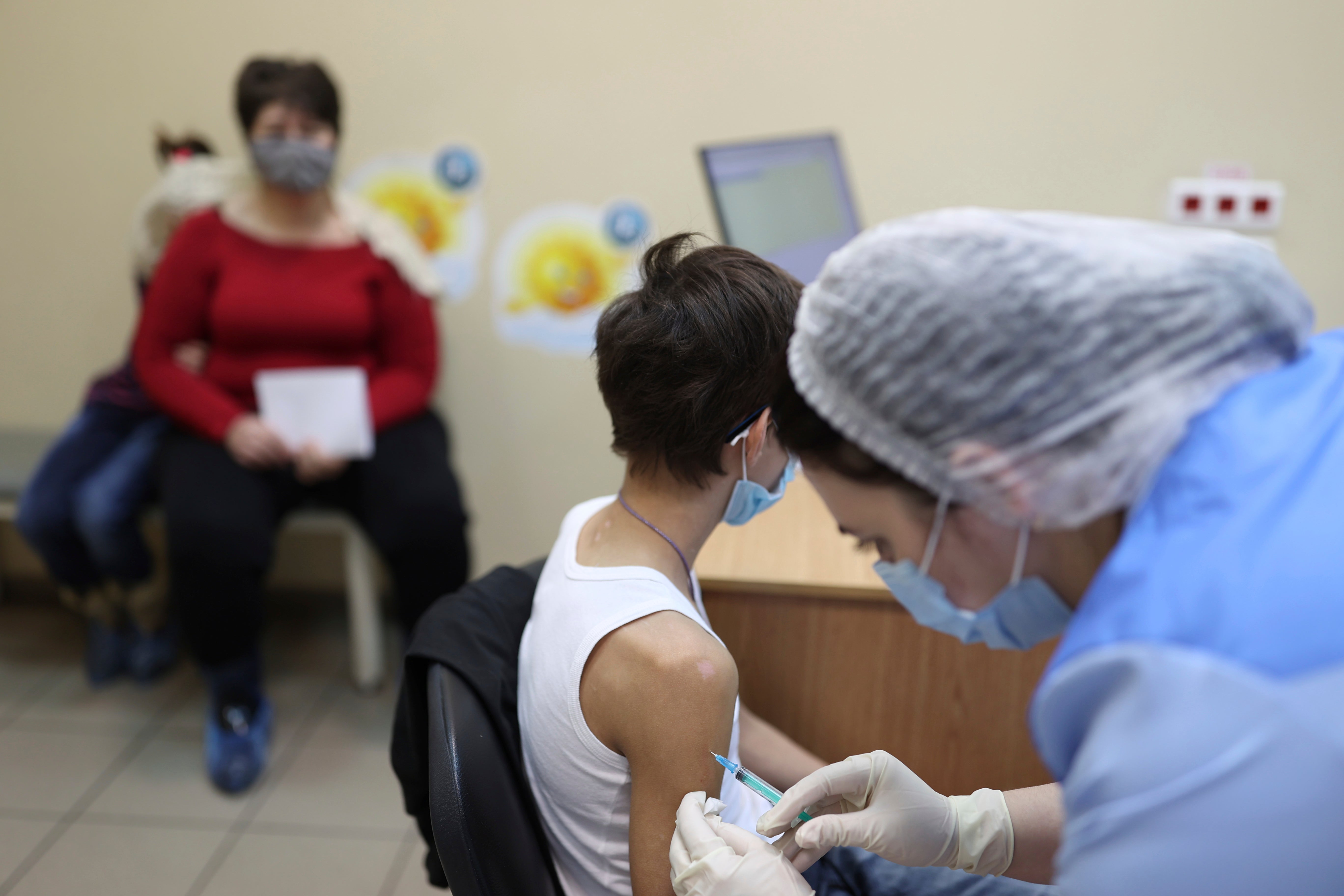Covid infections around world in month-long decline but ‘too early’ to declare pandemic over
Cases rose in West Pacific but declined in all other regions, Matt Mathers reports


Global Covid cases are on a downward trend but it is still too early to declare the pandemic over, the World Health Organisation has said.
Figures collated by the health body show that the number of new virus cases reported globally dropped by 16 per cent last week, marking a month-long decline.
Deaths are also declining in most countries and fell by 10 per cent compared with the previous week, the United Nations health agency said in its weekly update on Tuesday.
The WHO said there were more than 10 million new cases and about 60,000 deaths globally.
The Western Pacific was the only region where infections increased, with about a third more cases than the previous week.
Deaths rose by 22 per cent in the Western Pacific and about 4 per cent in the Middle East, while declining everywhere else.
In the UK, Boris Johnson last month removed all remaining Covid restrictions in the country as cases, hospitalisations and deaths fell.
According to government data published on 1 March, 231,973 people tested positive for the virus in the past seven days, down 24 per cent on the previous week, although cases have spiked in recent days.
There were just under 100,000 infections logged on 1 March, up from 82,000 on 28 February.
On 21 February, when Mr Johnson axed the restrictions, just under 40,000 cases were reported.
The latest government data says 741 people have died with the illness in the past seven days, down 24 per cent on the previous week.
Some 7,709 people were admitted to hospital over the same period, down 9 per cent on the week before.
Meanwhile, 92 per cent of adults in the UK have had a first vaccine dose, 85 per cent a second and 67 per cent a third or booster dose.
The highest numbers of new cases, in the week from 21-27 February, were reported from Germany (1,119,632 – down 8 per cent on the previous week); the Republic of Korea (1,032,008 – up 69 per cent); and the Russian Federation (920, 697 – down 26 per cent), according to the WHO report.

The highest number of new deaths were reported from the US (13,663 new deaths - no rise on the previous week); the Russian Federation (5,427 new deaths -up 3 per cent); Brazil (4,361 new deaths - down 26 per cent); Mexico (2,027 new deaths up 39 per cent); and Turkey (1,838 new deaths - down 4 per cent).
The WHO said the Omicron variant remains overwhelmingly dominant worldwide. Among virus sequences shared with the world’s largest publicly accessible database, more than 99.5 per cent were Omicron while only 0.3 per cent were Delta.
In the last month, none of the other worrying variants — including Beta, Gamma, Lambda or Mu — have been reported, although the WHO said there were surveillance challenges in many countries.

Numerous countries across Europe including Britain, Sweden and Denmark, have released nearly all their Covid restrictions as cases have fallen dramatically while immunisation campaigns have progressed.
In the US scientists have estimated about 73 per cent of the population is now immune to Omicron and that any future spikes of disease will require far less disruptive interventions to control epidemics.
Still, the WHO has repeatedly said it is too early to declare the pandemic over and warned that if the coronavirus is allowed to continue spreading, it will have further chances to mutate into a potentially more deadly or transmissible version.






Join our commenting forum
Join thought-provoking conversations, follow other Independent readers and see their replies
Comments